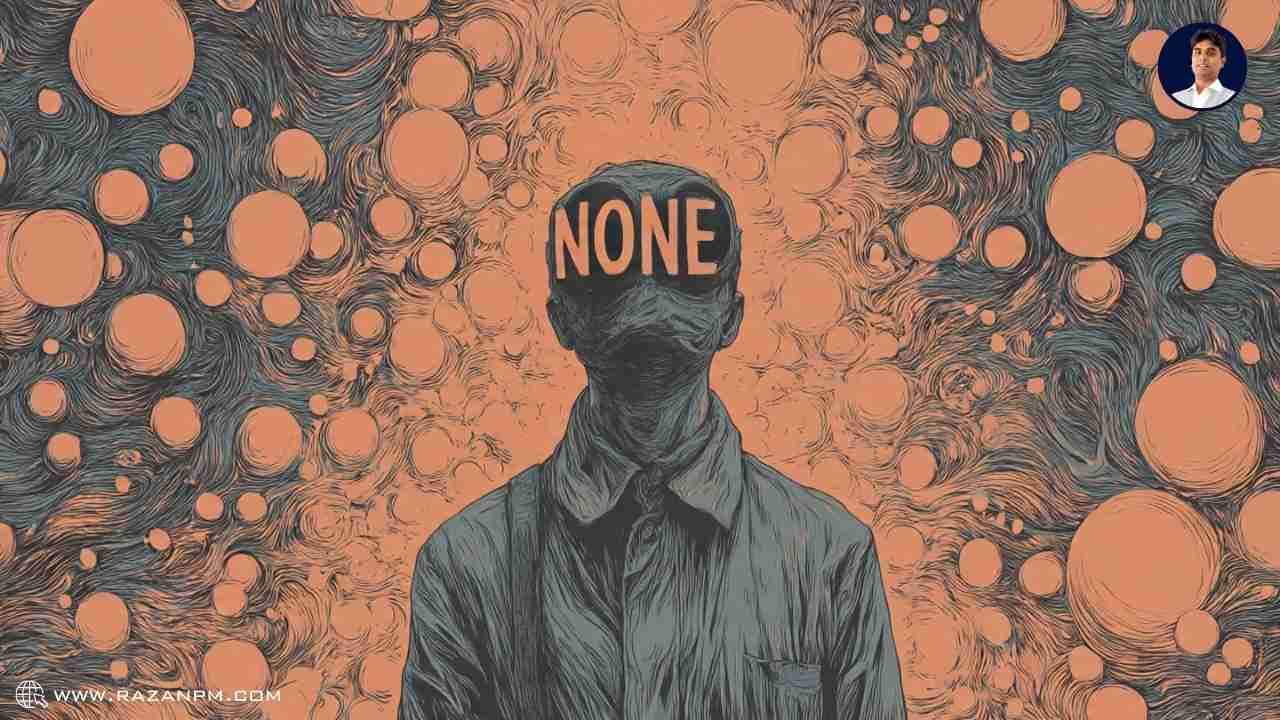You know that feeling when your partner forgets to reply to your “good morning” text, and instead of sipping your chai peacefully, your brain starts scripting a full thriller movie — Are they ignoring me? Did I do something? Ya they’ve stopped loving me?!
And just like that, from one unread message, your thoughts spiral into overthinking… leading to an emotional rollercoaster that feels like heartbreak even while you’re still together.
This is where emotional separation quietly starts — not always with big fights but with small silences that grow louder each day.
also read: why kind words create misunderstanding?
People often imagine “breakups” as massive explosions — shouting, tears, doors slammed. But emotional separation? It’s sneakier.
It’s two people sitting side by side yet galaxies apart. One partner scrolls through Instagram while the other scrolls through memories, wondering “When did we stop feeling close?”
Clients often tell me, “Sir., hum toh saath hain par lagta hai kuch missing hai.”
That missing feeling — that emotional gap — is often the shadow of a deeper separation already underway.
also read: how caregiving triggers hidden depression?
Emotionally, you might feel anxious, resentful, or even numb. The worst part? You can’t pinpoint when it all started.
also read: how fibromyalgia fuels hiddendepression?

also read: why saying i love you is not enough?
From a clinical psychology viewpoint, emotional separation often aligns with early markers of relationship distress seen in Adjustment Disorder (DSM-5 code F43.23) or Relational Problems (Z63.5).
Prolonged emotional disconnection can also overlap with Attachment Disorders or symptoms of Depressive Episodes (ICD-10 code F32), especially if one partner experiences heightened withdrawal or emotional numbness.
Essentially, the brain starts perceiving the relationship as a source of stress rather than safety. The amygdala (our emotional threat detector) becomes hyperactive, while empathy circuits in the prefrontal cortex start dimming. So, when your partner says “I need space,” your brain hears “I don’t love you anymore” — triggering a cascade of fear and insecurity.
also read: why emotional intimacy feels unsafefor some partners?

A study published in the Journal of Social and Personal Relationships (2019) revealed that emotional disconnection often begins months before couples notice problems consciously. Subtle shifts in body language, tone, and facial responsiveness signal early withdrawal.
Another research from University of California, Los Angeles (UCLA) found that couples with high “emotional disengagement scores” reported double the likelihood of perceiving relationship dissatisfaction within six months, irrespective of how “peaceful” things looked on the surface.
Simply put, silence doesn’t always mean peace… sometimes it’s the sound of distance growing.
also read: how hormonal shifts can triggerdepression?
I remember one of my therapy sessions years ago with a couple who looked absolutely fine—smiling, polite, composed. But when I asked, “When was the last time you laughed together?” both remained silent.
That silence… it wasn’t awkward. It was heavy. Like grief.
After sessions of exploring, they realized they hadn’t lost love — they’d just stopped expressing it. Their emotional soil had dried, and no one had been watering it.
also read: when silence turns intomisunderstanding?
It made me reflect on how emotional separation isn’t about hate — it’s about neglect. It happens slowly, quietly, until one day you look back and realize connection has become memory.
That’s when I began developing what I now call “The Emotional Reconnect Framework” — a structured process to rebuild emotional intimacy through guided mindfulness, vulnerability exercises, and communication therapy.
also read: how chronic pain fuels depression atany age?

Want to check where you stand and take a tiny healing step today? Try this 10-minute daily ritual:
This tiny habit gently restarts emotional communication. It rebuilds safety — the foundation of any bond. Most couples notice within a few days that the air feels “lighter,” like a door quietly opening again.
also read: the emotional burden behind thebody’s battles
This small exercise helps you notice if emotional separation has started — but reversing it fully needs guided support.
Because when emotions have tangled over months or years, it takes structured therapy sessions to repair trust and rebuild emotional wiring.
If your inner voice whispers “this feels like us”, that’s your cue to go deeper — not to assign blame, but to rediscover connection.
also read: 10 coping tools for depression aftertrauma
If this blog touched a chord, if those silences in your relationship feel familiar — remember, you don’t have to untangle them alone. Emotional healing is a process, and guidance can make it easier, faster, and more peaceful.
If this feels familiar, you don’t have to figure it out alone.
Book your consultation here and let’s work together to find warmth, clarity, and closeness again. As I always tell my clients — “healing begins the moment you decide to show up for your heart.” ❤️
👉 Begin Your Journey with a 1 on 1 Consultation
👉 Begin Your Journey with a 1 on 1 Consultation
 Q1. What is emotional separation in a relationship?
Q1. What is emotional separation in a relationship?Emotional separation means your heart starts detaching from your partner even while you’re physically together. It’s when emotional intimacy fades — conversations feel hollow, connection feels one-sided, and the bond starts weakening silently.
also read: why love feels hot then cold?
Look for early signs like less emotional sharing, lower empathy, frequent irritation, or feeling lonely even when together. When talks turn transactional — “Did you eat?” replaces “How are you feeling?” — that’s an early signal of emotional disconnect.
also read: digital romance, real loneliness genz truth
Yes, absolutely. In fact, silent separations often happen in calm, polite relationships. Emotional disconnection doesn’t always come with shouting — it often comes with silence. The absence of conflict isn’t always peace; sometimes, it’s distance.
also read: 6 warning signs of depression thatincreases heart risk
Prolonged emotional distance may trigger anxiety, depression, or a reduced sense of self-worth. According to DSM-5, these symptoms often align with Adjustment Disorders or Relational Distress. Your brain starts perceiving emotional neglect as stress, activating fear responses.
also read: why small fights turn into bigarguments?
Yes. Emotional separation is reversible if both partners are willing to rebuild trust and emotional safety. Therapy-based methods like guided mindfulness, empathy training, and “emotion-check conversations” can reignite understanding and connection.
also read: overthinking messages is killingyour peace
Start by expressing, not accusing — say, “I’ve been feeling disconnected lately” instead of “You don’t care anymore.” Practice mindful listening, and when ready, try professional couples counseling or emotional reconnection therapy. Small efforts such as “The 5-Minute Emotional Mirror” exercise help deeply.
also read: blood sugar battles affect mentalhealth
Healing emotional distance varies, often taking weeks to months depending on the duration of disconnection and underlying resentment. Therapy sessions and consistent small reconnection practices accelerate healing significantly.
also read: how to escape the trap of constantdigital talk?
If emotional loneliness persists despite communication attempts, or if anxiety, sadness, or detachment increase, see a psychologist. Emotional distancing can deepen into chronic relational distress if left unaddressed — early therapy helps prevent that.
also read: why digital conversations arekilling real connection?
